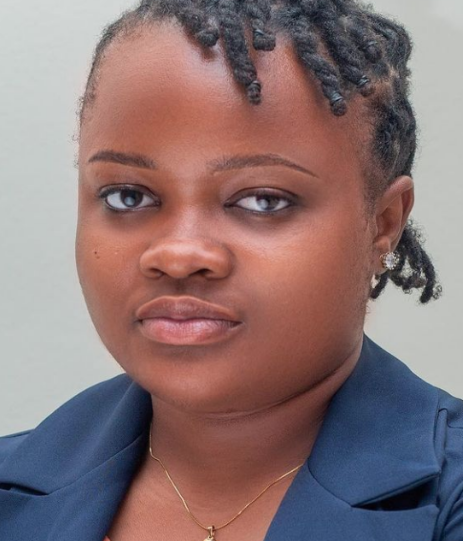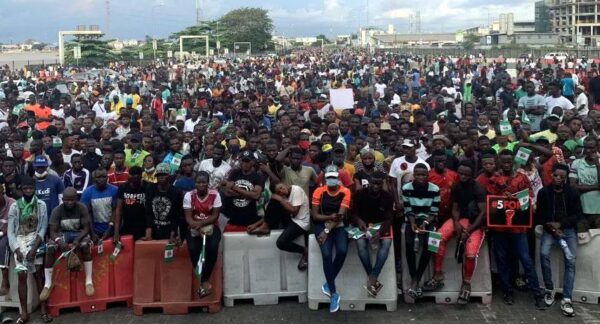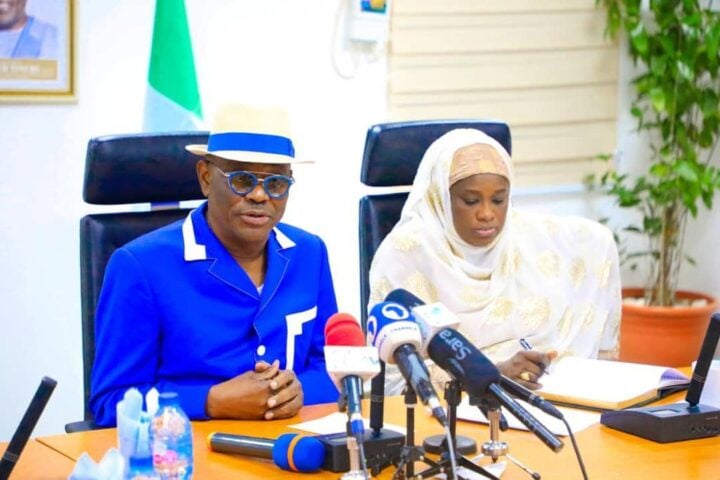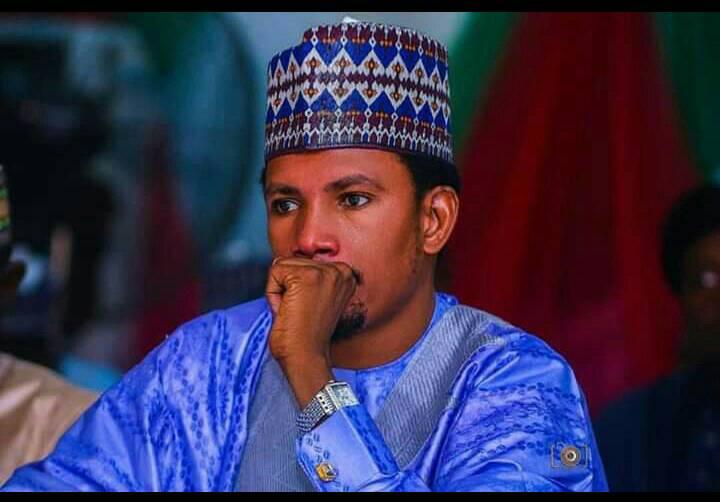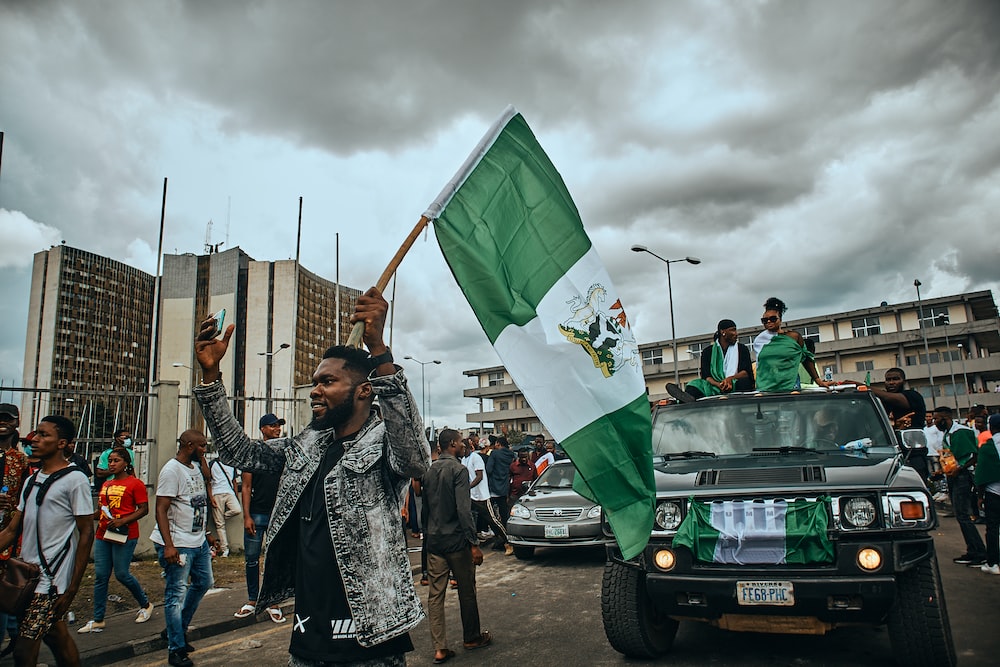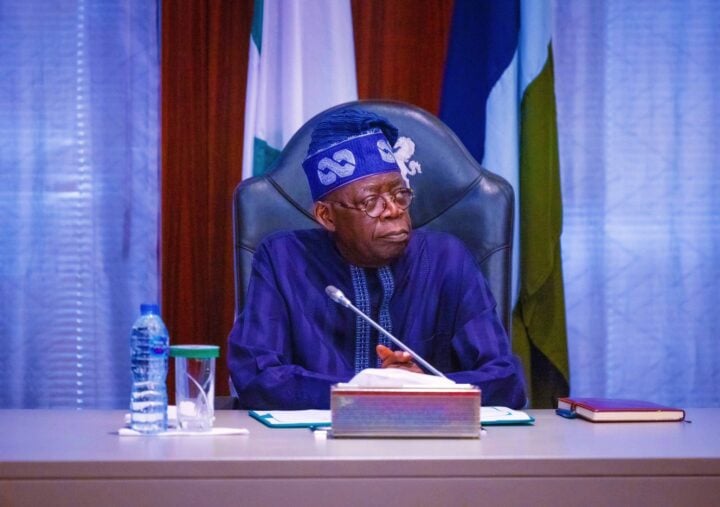The air in Lagos is burdened with the weight of a history of injustice and tragedy of unhealed wounds. There are places in the city where this weight is particularly potent; in Ijesha, where a familiar emptiness taints the air of a modest home filled with sorrow that may never go away.
This home wasn’t always filled with sadness. It was once alive with the laughter of Monsurat Ojuade, a middle child who wanted to study Mass Communication. She had scored 236 in the 2021 Unified Tertiary Matriculation Examinations, awaiting a university acceptance letter. She had dreams, and aspirations just like any other teenager.
But on the 11th of September, 2021, Monsurat Ojuade met a fate that no one, especially an 18-year-old admission seeker, should ever meet in her own home. She was shot dead by Sergeant Samuel Phillips. The floor of the compound where she grew up and played was filled with her blood: a horrible scene that should have never taken place, a stark reminder that despite the outrage and promises that followed the #EndSARS protests in October 2020, the extrajudicial killings by the police and law enforcement agencies continue. Monsurat was just an 18-year-old, looking for admission and Sergeant Samuel Phillips who swore to protect and serve citizens like her, wielded his gun with a callous disregard for the sanctity of her life.
Three years have passed since the street protests of the #The EndSARS movement, born out of a collective cry for justice and an end to police brutality in Nigeria, were heavily repressed.
Advertisement
Three years since young Nigerians went on the streets asking for a chance at survival; to live and not be afraid of being killed; to achieve potential in a country that has taken so much from them; a chance to breathe. They had raised their voices in unity against senseless state-sanctioned violence, demanding an end to the reign of terror of law enforcement officials whose presence had become synonymous with fear and injustice. They dared to believe their calls for an end to police brutality would finally be heard.
Many who participated in the protests remember it differently. Some were emboldened by the freedom of being finally able to speak out for justice. Some with bittersweet smiles, remembering the days into the protests, where they gathered together on the streets. Some remember only the backlash, time spent in physical jails, time spent in the jails of their own minds unable to get out, due to the sheer brutality, and injustice of it all.
It’s been three years since many of them were shot at, brutalized, gaslighted, maimed, tortured, hounded out of their own country, tagged ‘terrorists’, jailed, and killed for their demands. In spite of the repression, many questions still beg for answers. Have the calls for accountability been heeded? Has the system that allowed such tragedy to occur been transformed?
Advertisement
Barely weeks after the #EndSARS protests, some of us found ourselves having to document cases of human rights violations we could get information on via the media, and more names, victims of extrajudicial killings, like Monsurat, killed by those who were supposed to protect them. In 2021, names accumulated, after over 100 citizens were killed during the protests in Lagos in 2020: Jelil Bakare, Oghenetejire Joel, Dauda Danladi, Jumoke Oyeleke, Saheed Olabomi, Emmanuel Samuel, and many more, as Amnesty International reported 115 citizens killed between March and June 2021.
In August 2021, Kubiat Isaac Akpan, in September, Goodluck Oviekeme, Gift Ojarikre, Moses Adamu, and others. In October, Emmanuel Upog Dickson and Chigozie Nwaiwu.
In November 2021, Wale, Ugochukwu Chinyere, Oliver Ezra Barawan, and Mubaraq, the only child of his parents. In December, Kabiru Kabai and many more.
The 2021 Human Freedom Index ranked Nigeria 123 out of 165 countries, highlighting the prevalent police brutality and the Centre for Democracy and Development (CDD) disclosed that security officers killed over 13,000 people in Nigeria from 2011 to 2021.
Advertisement
In 2022, more names joined the list: Shedrach Ochoche, Paul Durowaiye, Jamiu Fatai, Shaobana Abdulrasheed, Seriki Olanrewaju, Sunday Agbamuche, Donatus Donkong, Igwe Odinaka, Chikere Obieche, Abiola Afolabi, Emmanuel Joseph, Toba Adedeji, Oliver Ezra Barawani, Emeka Uwalaka, Godsent Obhafuoso, and Idris Yau. Before the end of the year 2022, Gafaru Buraimoh, Pregnant Lawyer Bolanle Raheem and Stephen Alabi were all shot dead in Lagos.
As the 2023 new year began, police officers claimed more lives. In January 2023, police officers killed Nurudeen Quadri in Osun, and two people in Katsina. A police officer murdered his own niece in Owerri, Imo. In February, a police officer stabbed a soldier to death, and Kingsley Agidi was killed in Delta, while 80-year-old Maryam ‘Yerbure’ Abdullahi was killed in Adamawa.
In March 2023, the Open Society Initiative found evidence of extrajudicial killings, rape, and extortion, including “summary executions of suspects”, after monitoring over 400 police stations in Nigeria. The names didn’t stop coming in: Onyeka Ibe in April, over a N100 bribe, Bakare Idris in May, and Alafuro Peterside in August and the list continues to grow, month by month, year by year, with the names of more lives cut short, amidst thousands of enforced disappearances, extortions, and other human rights violations across the country going uncaptured and undocumented by the media.
These are not just names; they represent the lives of people with dreams and aspirations, families, and friends who loved them. They were not statistics; they were individuals whose lives were unjustly cut short by murderers in police uniforms who evade the consequences of their actions, emboldened by impunity. Three years later, SARS is still very much alive, having refined their methods, manipulating evidence to paint their victims as criminals and escape
accountability.
Advertisement
They do not stop at mere bullets. After shooting their victims, they leave them to bleed to death in the back of a dingy police vehicle or at the station, denying them the basic human right of medical aid. After all, the dead don’t talk.
This culture of impunity, once confined to the police, has now seeped into other branches of authority. The DSS, Nigerian Army, EFCC, NDLEA, Customs Officers, and even state police, all operate with an alarming lack of accountability and a callous disregard for human life.
Advertisement
Young and old, children and teenagers; no one is spared in this indiscriminate wave of killings and state-sanctioned violence. Where are the lawmakers, state governors, and the courts when security agents extort, torture, harass, brutalize, and perpetuate extrajudicial killings?
The silence, absence of accountability, and the lack of intervention from all corners is dangerously loud. Those who dare to protest in 2020 are still locked away in forgotten cells, forgotten, and voiceless, pawns in a power game that has lost its moral compass. Questions persist! What is the state punishing locked up protesters for? The fact that they spoke up for their lives, or the fact that they dared to?
Advertisement
The world continues to move forward, but many are left wondering if the spirit of the movement remains alive. Have its demands been met, or has it been silenced and forgotten? The anger and protest of #EndSARS in October 2020 feels far away, lost in never-ending oppression.
The movement itself may have evolved, but one statistic remains constant: the number of young Nigerians who still proudly display #EndSARS in their profiles, bios, and hearts. They carry the hope that the dreams born during the movement will become a reality, where young Nigerians can breathe freely in their own country, where one’s identity is not a cause for harassment, unafraid of their own skin, where they can never be framed on bogus charges by the roadside.
Advertisement
A Nigeria where one’s life is not threatened by the very institutions meant to safeguard it. Three years later, as we remember the memory of lives lost and futures stolen, and recite the names, including Monsurat’s, which stand as a stark reminder of that the fight for justice and accountability is far from over: we are left with a frightening question: Who will be the next victim?
Views expressed by contributors are strictly personal and not of TheCable.
Add a comment
